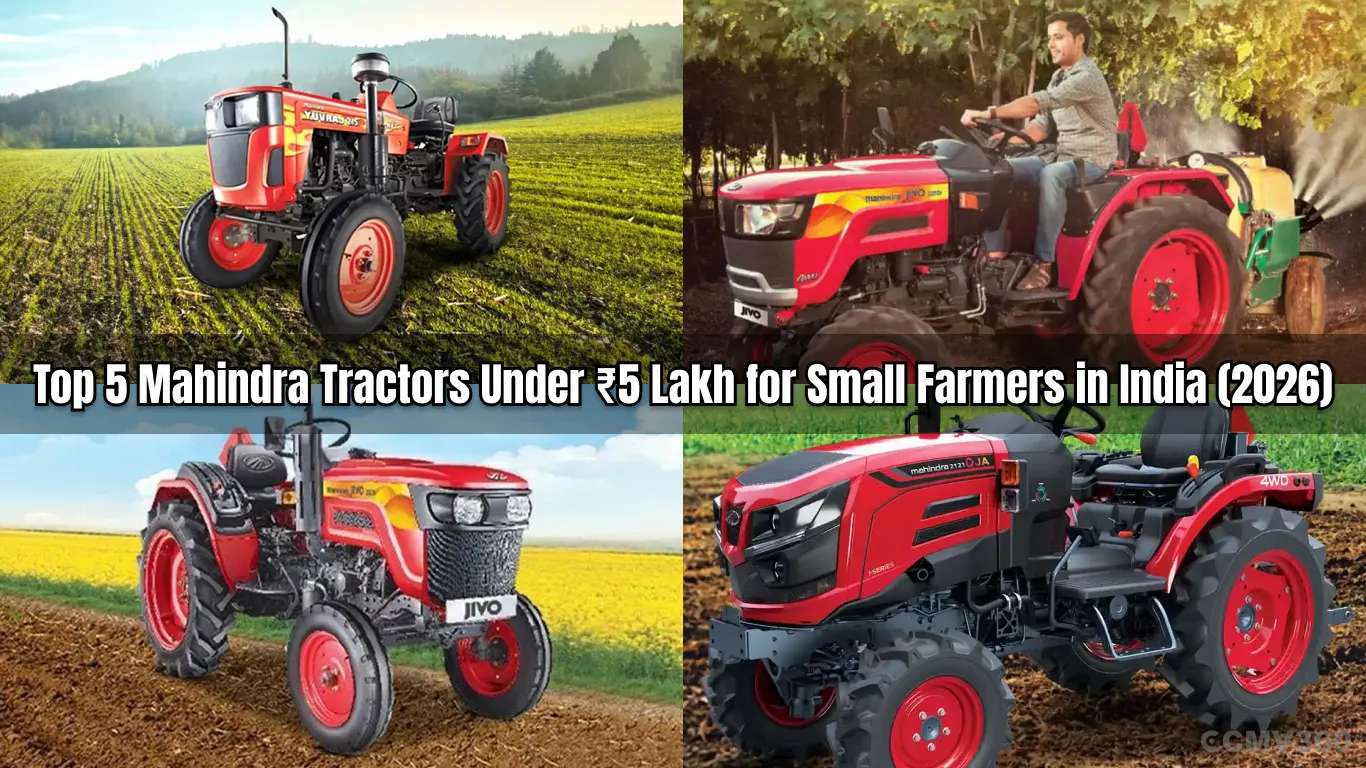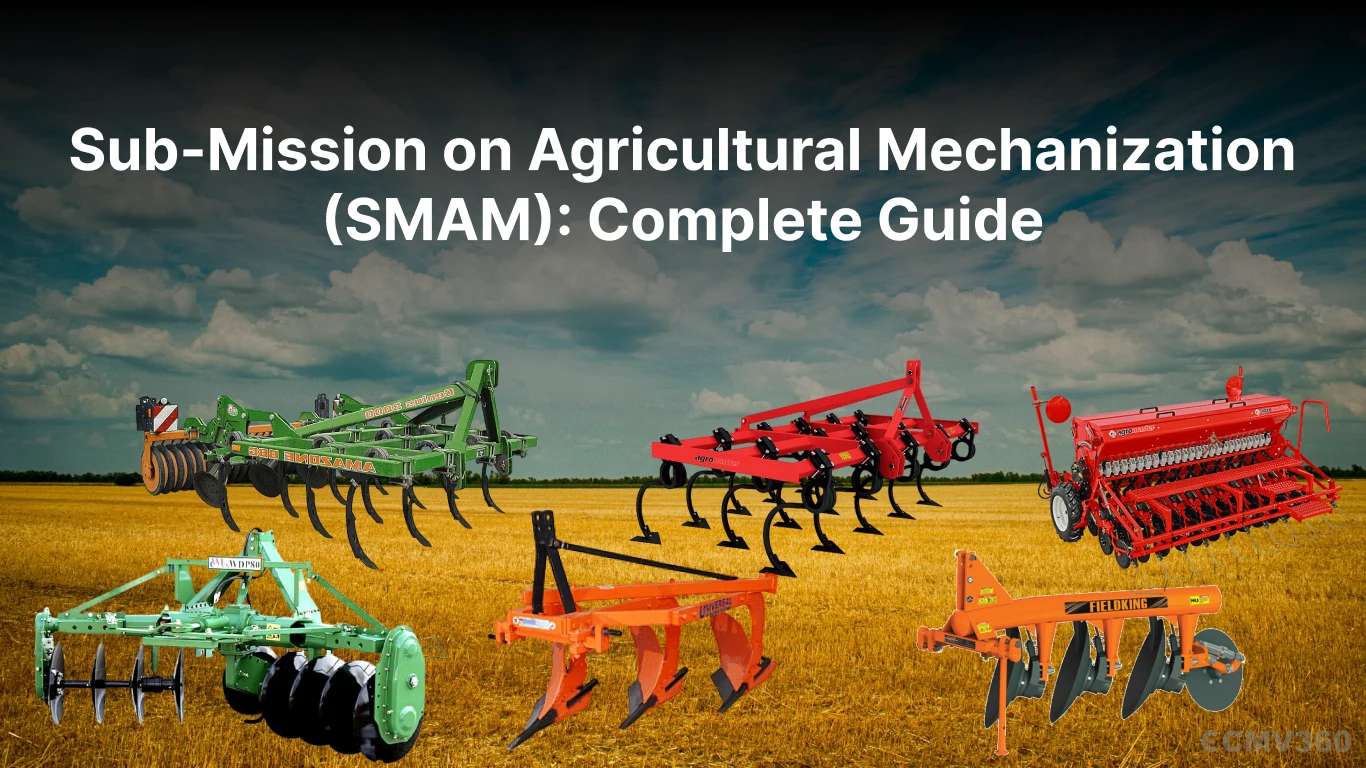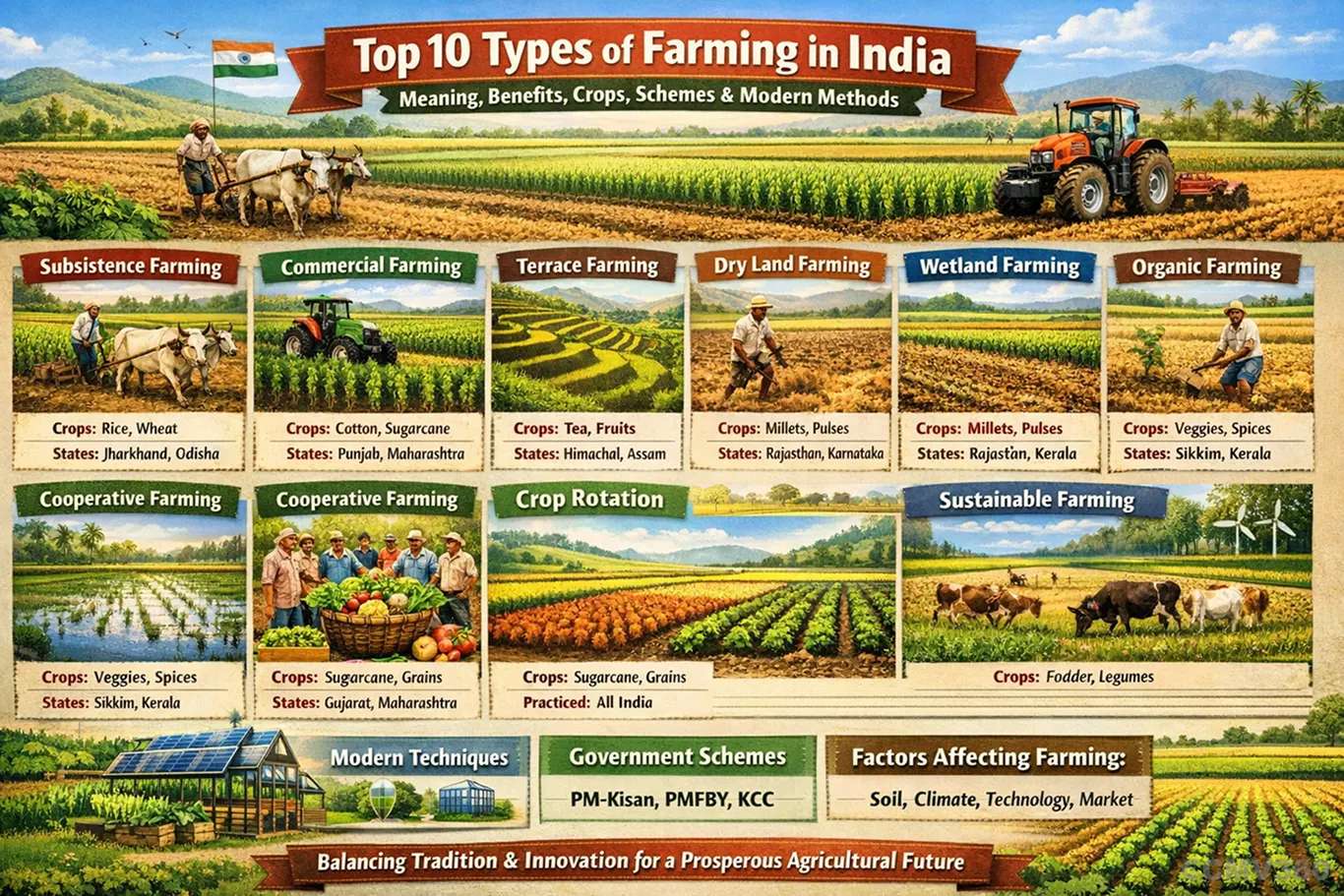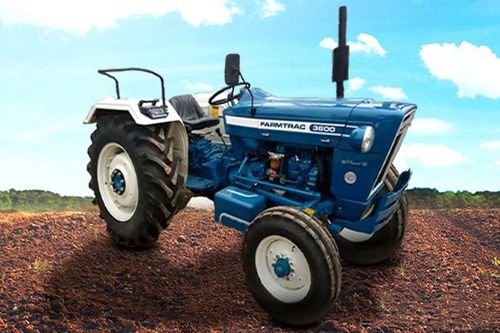Ad
Ad
Farming in India is Transforming Fast: 6 Modern Techniques That Can Boost Yields, Cut Costs, and Make You a Millionaire Farmer
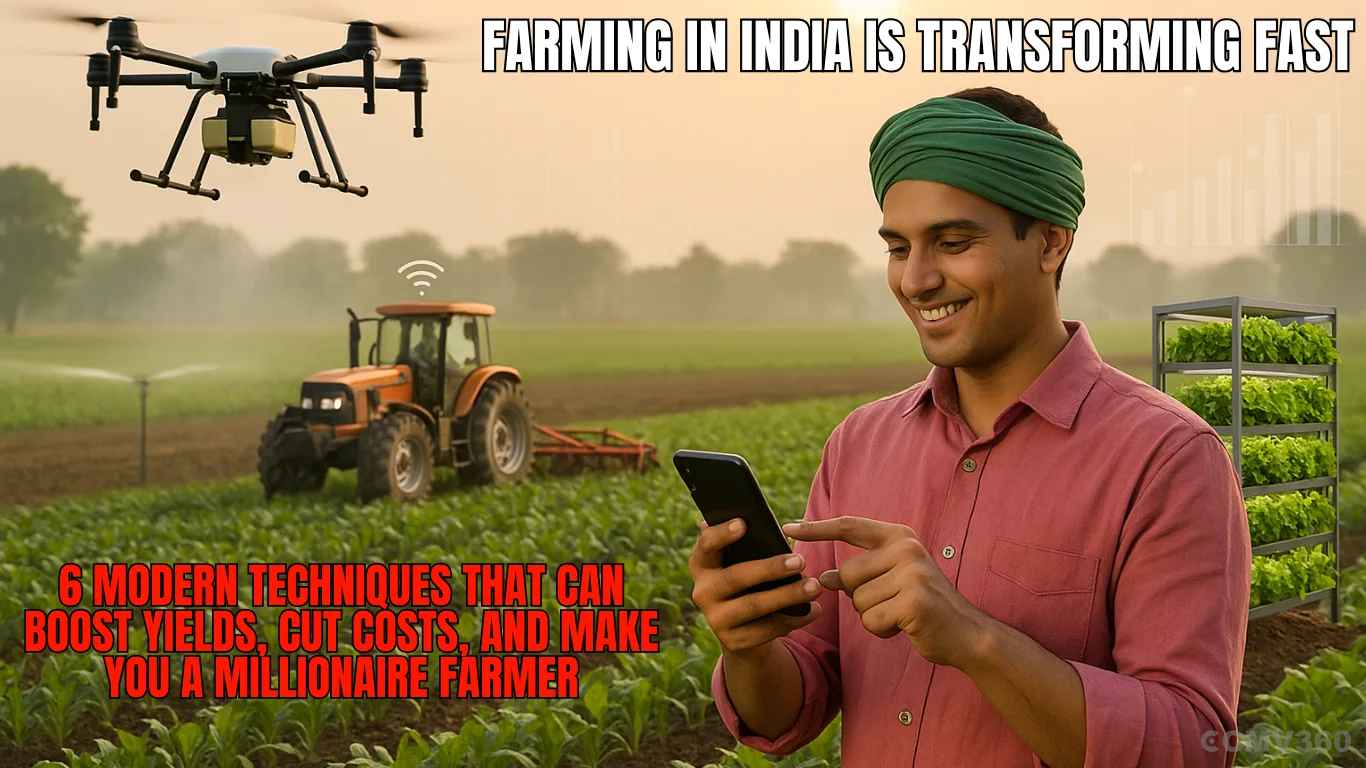
Agriculture has long been the backbone of India’s economy, providing livelihood to millions. However, the traditional image of farming with ploughs and bullocks is rapidly changing. With growing population pressures, rising input costs, and unpredictable weather, traditional farming methods are no longer sufficient.
To address these challenges, farmers are embracing modern technologies and innovative methods. These scientific farming techniques are not just increasing crop yields but are also helping farmers significantly cut down on input costs, reduce risks, and maximize profits. Today, farmers who adopt these new technologies are becoming self-reliant, successful, and even millionaire farmers.
Also Read: Monsoon Tractor Maintenance Guide: Keep Your Tractor Safe and Productive in Rainy Season
Let’s explore 6 such revolutionary agricultural techniques that are changing the future of farming in India.
1. Drone Technology: Smart Farming for High Returns
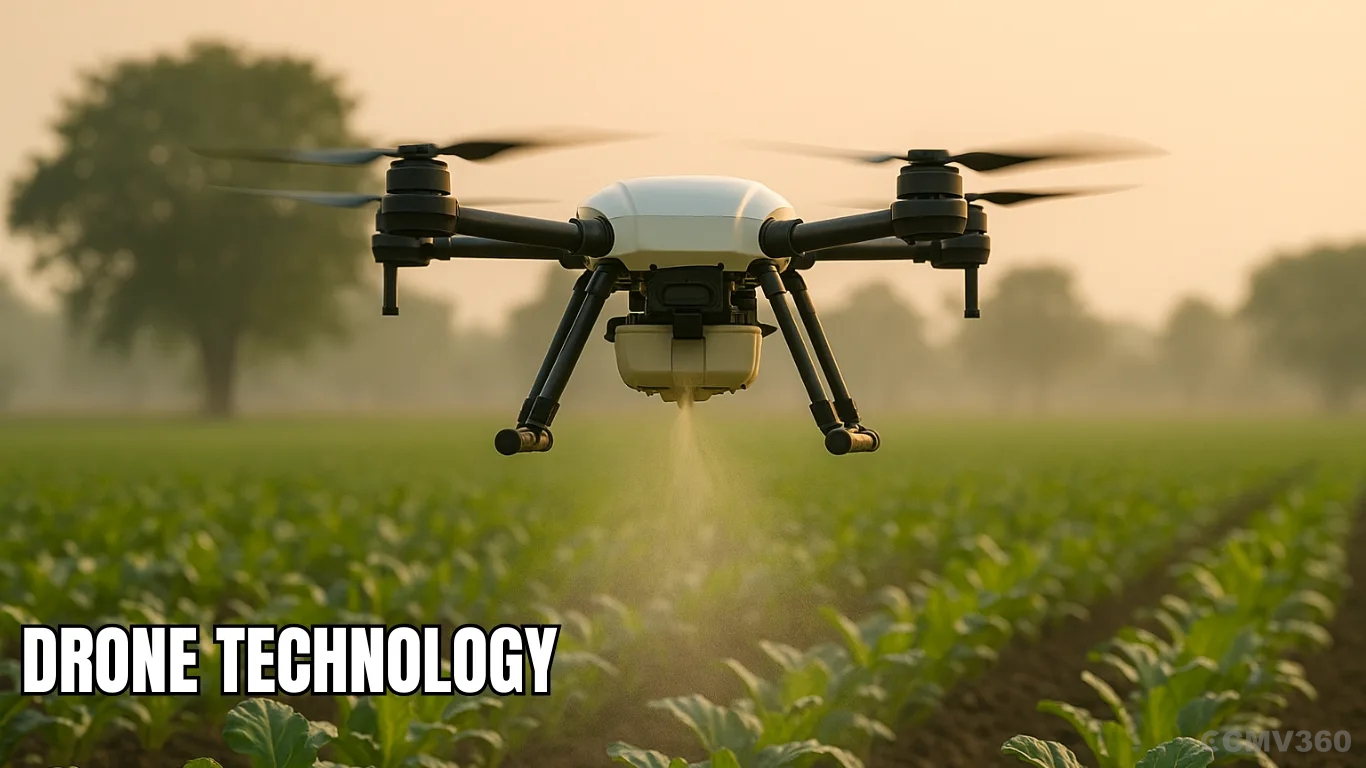
Drone technology is one of the biggest innovations in Indian agriculture. These unmanned aerial vehicles, equipped with high-tech sensors and cameras, help farmers in many ways. Drones can monitor large farm areas, detect pests, assess crop health, and spray fertilizers and pesticides with precision.
In many states, farmers are using drones to spray nutrients or pesticides over 10 acres of farmland in just one hour. This saves time, reduces labor costs, and minimizes the use of water and chemicals. Additionally, drone surveillance helps identify stressed areas in the field early, allowing timely intervention and reducing crop loss.
To boost the use of drones in agriculture, the government has launched the Lakhpati Didi Scheme. Under this, women from Self-Help Groups (SHGs) are being trained as drone pilots and provided with financial aid to purchase drones. This is promoting rural employment while making farming efficient and profitable.
2. AI and Machine Learning: Accurate Decisions for Better Yields
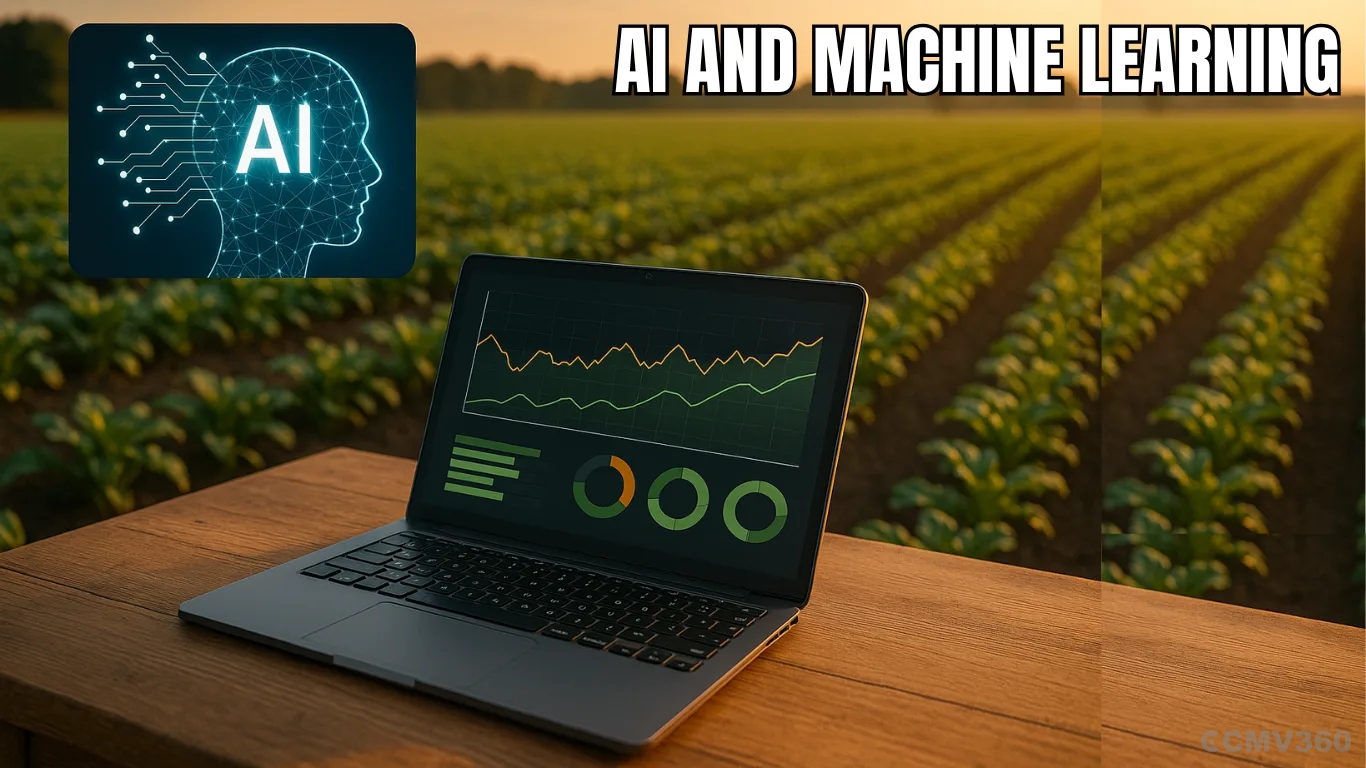
Artificial Intelligence (AI) and Machine Learning (ML) are transforming farming into a smart, data-driven activity. These technologies help farmers make informed decisions by analyzing soil quality, weather patterns, pest attacks, and crop diseases.
AI-based mobile applications are becoming digital advisors for farmers, providing them with real-time information and guidance in their local languages. These apps suggest the best time for sowing, irrigation, and fertilizer use, helping farmers manage their resources efficiently.
A prime example is Microsoft’s Farm Vibes project, which has helped sugarcane farmers increase production by 40% using AI-based recommendations. These tools also offer predictive analytics, allowing farmers to anticipate challenges and take preventive measures, ultimately saving costs and increasing productivity.
3. Precision Farming: Targeted Solutions for Every Inch of Land
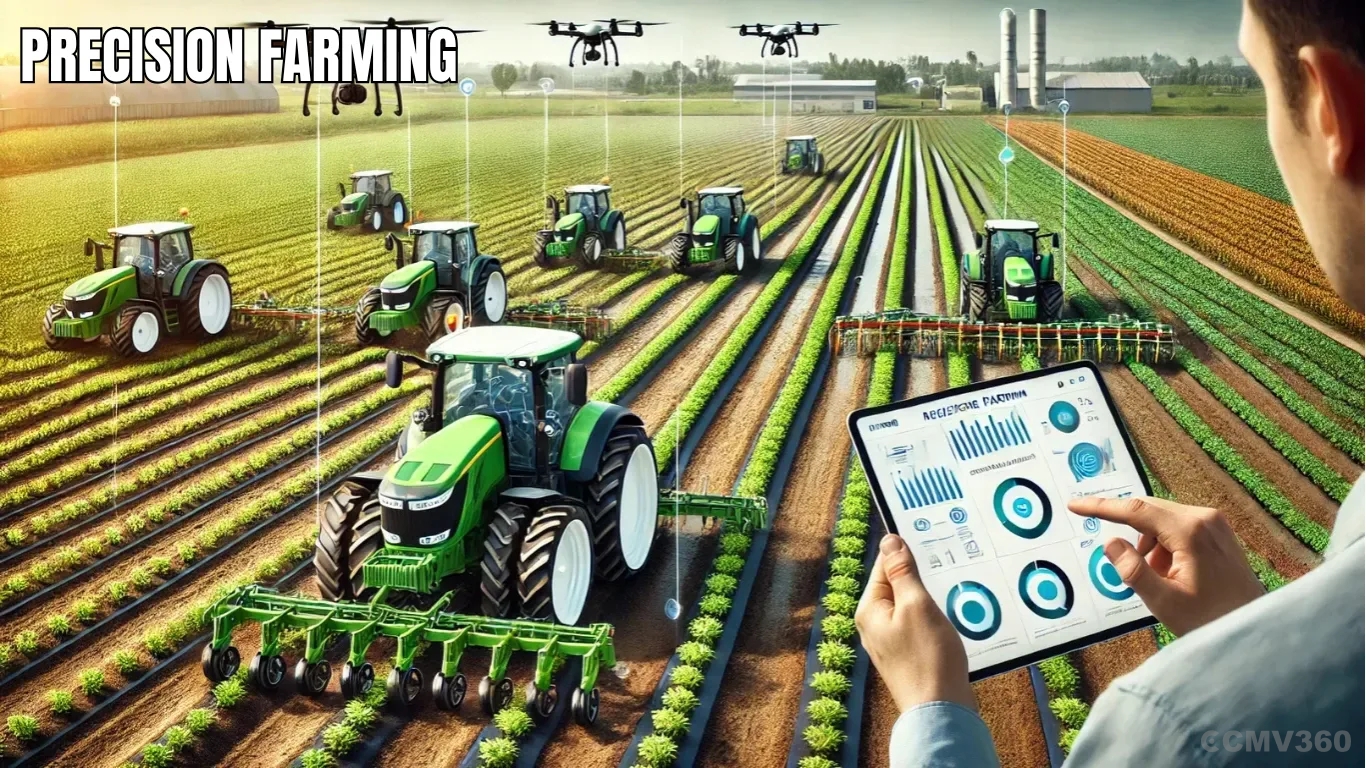
Precision farming is an advanced agricultural method that uses GPS, sensors, and data analytics to optimize field-level management. This approach helps farmers understand the specific needs of different parts of their fields and apply inputs accordingly.
Instead of blanket usage, fertilizers, water, and pesticides are applied only where needed. This not only saves resources but also ensures healthier crops and better yields. Precision farming reduces guesswork, promotes sustainable agriculture, and significantly boosts farmers’ profits.
It is particularly beneficial for large-scale farmers and commercial agriculture enterprises, but even small-scale farmers can now access precision farming tools through mobile apps and service providers.
Also Read: Modern Tractors and Precision Farming: Transforming Agriculture for Sustainability
4. Robotics and Automation: Efficient and Labor-Free Farming
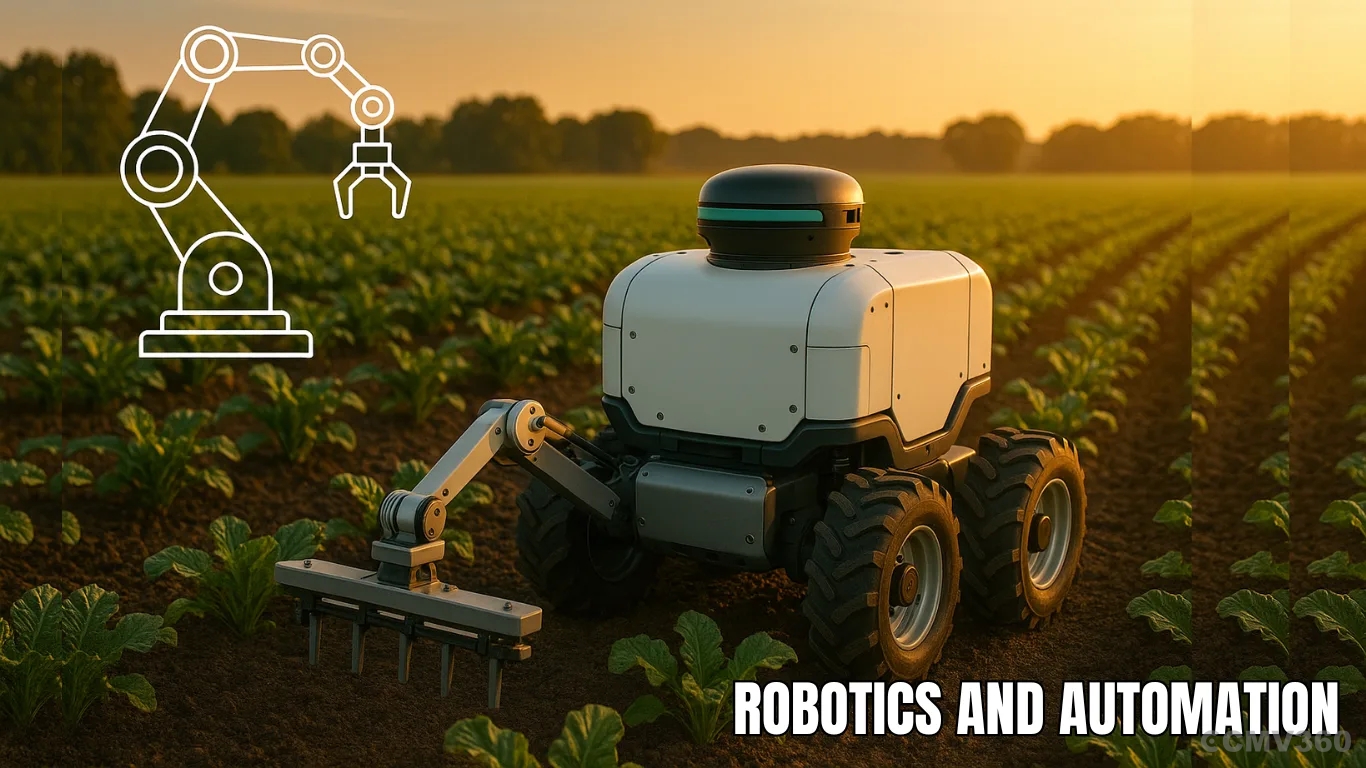
Modern farming is fast becoming the domain of smart machines. Robotics and automation technologies have made it possible to perform tasks like sowing, harvesting, pruning, and weeding with minimal human intervention.
Machines such as sensor-equipped tractors, robotic weeders, and automatic harvesters can work around the clock with high precision and speed. These machines reduce labor dependency, improve productivity, and lower the risk of crop damage due to delays.
Automated agriculture is especially useful during labor shortages and in regions where farming requires timely action to avoid losses. Moreover, the use of robotics ensures consistency in work quality and increases efficiency.
5. Vertical Farming: Maximum Yield with Minimum Land and Water
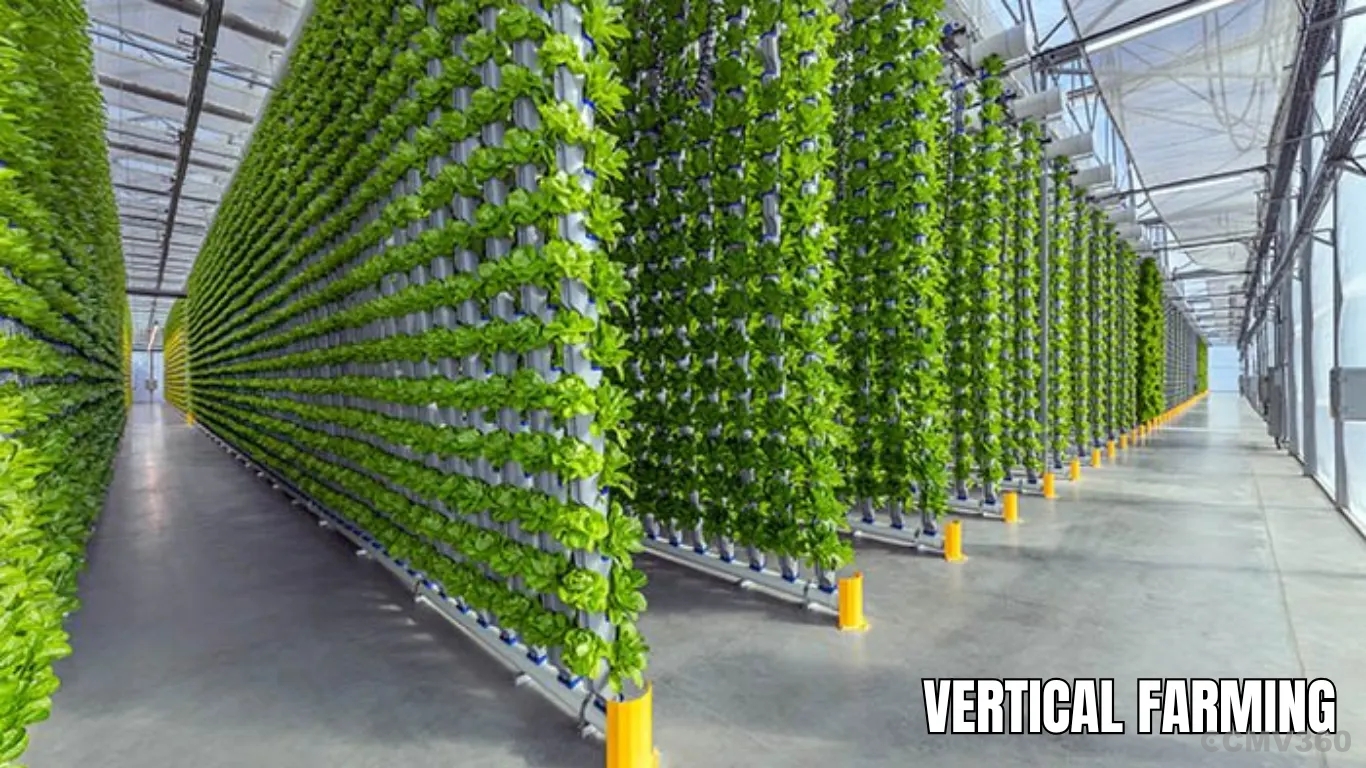
Vertical farming is a cutting-edge agricultural technique where crops are grown in vertically stacked layers in a controlled indoor environment. This system uses hydroponics (growing plants in water and nutrients), aeroponics (mist-based nutrient supply), or aquaponics (combining fish farming and hydroponics).
Vertical farming is ideal for urban areas where land is scarce. It uses 90% less water compared to traditional farming and requires no soil. By controlling light, temperature, and humidity, farmers can grow crops throughout the year, unaffected by weather or climate change.
This technique also reduces the use of harmful chemicals and pesticides, making the produce healthier and more environmentally friendly. With growing demand for organic and locally grown produce, vertical farming offers excellent profit potential for urban farmers and entrepreneurs.
6. Drip and Sprinkler Irrigation Systems: More Crop Per Drop
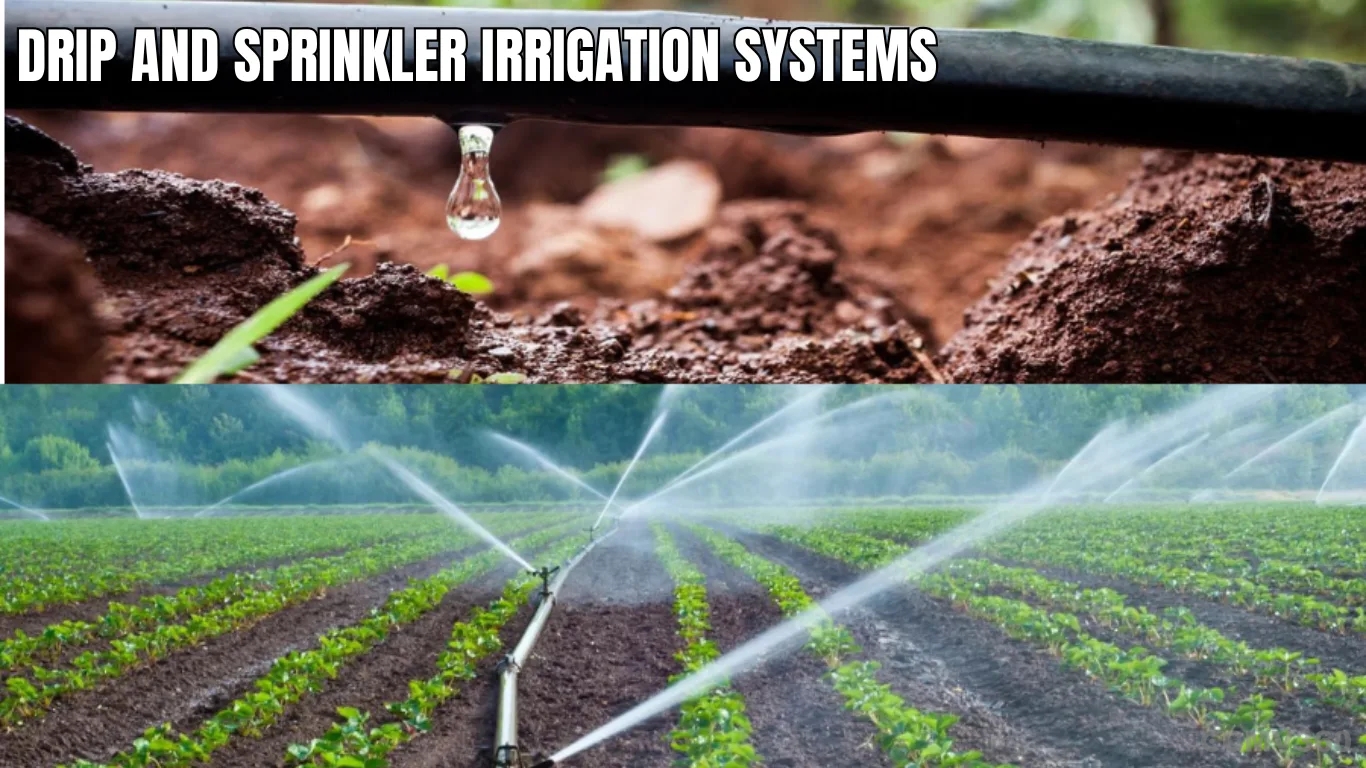
Water scarcity is a serious challenge for Indian farmers, especially in regions with low rainfall or declining groundwater levels. Drip and sprinkler irrigation systems provide an efficient solution by delivering water directly to plant roots or uniformly over crops.
In drip irrigation, water is delivered drop by drop to each plant, ensuring minimal wastage. In sprinkler irrigation, water is sprayed like rain across the field. Both methods help conserve water and increase fertilizer efficiency, leading to higher yields.
Studies show that these systems can boost crop productivity by 30% to 50% while reducing water usage by 40% to 60%. These systems are especially valuable for horticulture, cash crops, and regions facing drought. Many state governments also offer subsidies to farmers for adopting drip and sprinkler systems, making them more affordable.
Benefits of Adopting Modern Farming Techniques
Higher Yields: Advanced technologies improve crop health and productivity.
Lower Costs: Efficient resource use reduces input costs and labor expenses.
Better Profits: Higher yield and reduced costs result in increased income.
Sustainable Farming: Smart techniques promote environmentally friendly agriculture.
Less Risk: Predictive tools help manage risks due to pests, diseases, or weather.
Also Read: Useful Advice for Soybean Farmers: Right Sowing Time, Best Varieties, and Complete Cultivation Guide
CMV360 Says
Modern farming technologies are transforming Indian agriculture by increasing productivity, reducing costs, and helping farmers earn higher profits. Techniques like drone usage, AI-based decision-making, precision farming, robotics, vertical farming, and smart irrigation systems are not just innovations—they are necessities in today’s fast-changing agricultural landscape.
By adopting these methods, Indian farmers can ensure sustainable, profitable, and future-ready farming. These innovations hold the potential to turn every farmer into a smart, self-reliant, and even a millionaire farmer.
FAQs: Farmers Common Questions About Modern Farming
Q1. Why should farmers adopt new techniques in farming?
Modern techniques make farming profitable, efficient, and ready for future challenges. They help reduce costs, improve yields, and manage risks better than traditional methods.
Q2. What is precision farming, and how does it help?
Precision farming uses data and technology to provide exact inputs (like water and fertilizers) where needed, reducing waste and improving crop performance.
Q3. What is the difference between drip and sprinkler irrigation?
Drip irrigation delivers water directly to plant roots drop-by-drop, while sprinkler irrigation sprays water evenly over crops. Both save water and improve yields.
Q4. What is hydroponic farming, and where is it used?
Hydroponic farming grows crops in water with nutrients, without soil. It is ideal for urban and indoor farming, especially in limited spaces.
Q5. How do drones help in agriculture?
Drones help monitor crops, spray pesticides, and assess plant health quickly and accurately, saving time, labor, and input costs.
Features & Articles
Single and Double Clutch in Tractors: Which One Is the Right Choice for Your Farming Needs?
Compare single vs double clutch tractors. Learn differences, benefits, and which clutch suits your farming needs for better efficiency, comfort, and long-term value....
02-Feb-26 12:22 PM
Read Full NewsTop 10 Tractor Brands in India 2026
Explore the top 10 tractor brands in India for 2026 with prices, features, and uses. A simple guide to help farmers choose the right tractor....
23-Jan-26 11:48 AM
Read Full NewsTop 5 Mahindra Tractors Under ₹5 Lakh for Small Farmers in India (2026)
Explore the best Mahindra tractors under ₹5 lakh with prices, features, and comparisons. A simple 2026 guide for small farmers seeking affordable, reliable, and fuel-effi...
22-Jan-26 01:03 PM
Read Full NewsMukhya Mantri Ladli Behna Yojana 2026: Complete Updated Guide to Benefits, Eligibility, Application Process, and Impact
Complete guide to Mukhya Mantri Ladli Behna Yojana 2026 covering benefits, ₹1,500 monthly assistance, eligibility rules, application process, DBT payments, latest updates...
21-Jan-26 12:24 PM
Read Full NewsSub-Mission on Agricultural Mechanization (SMAM): Complete Guide
Complete guide to Sub-Mission on Agricultural Mechanization covering objectives, subsidy structure, eligibility, benefits, funding pattern, and online application process...
16-Jan-26 06:26 AM
Read Full NewsTop 10 Types of Farming Practiced in India 2026: Explained with Crops, Benefits and Schemes
Explore the top 10 types of farming in India with meaning, benefits, crops grown, modern methods, key factors, and government schemes supporting sustainable and profitabl...
15-Jan-26 09:43 AM
Read Full NewsAd
Ad
As featured on:


Registered Office Address
Delente Technologies Pvt. Ltd.
M3M Cosmopolitan, 12th Cosmopolitan,
Golf Course Ext Rd, Sector 66, Gurugram, Haryana
pincode - 122002



